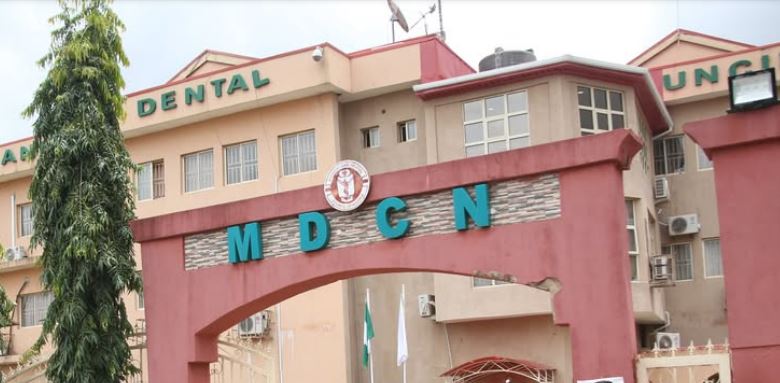The Medical and Dental Council of Nigeria (MDCN) has officially approved an increase in the admission quota for the Bachelor of Medicine, Bachelor of Surgery (MBBS) programme at the University of Abuja, scaling it up from 75 to 200 students.
This major milestone was announced on the University’s main campus by Professor Fatima Kyari, Registrar of the MDCN, following an intensive and transparent re-accreditation exercise led by a 17-member team of Council representatives.

🔍 A Result of Rigorous Re-Accreditation
According to Prof. Kyari, the increase in quota reflects the Council’s recognition of the university’s growing capacity, as demonstrated during the recent evaluation. She praised the institution for its strides in improving medical education infrastructure but also emphasized the need for continued development in key areas such as:
-
Expansion of clinical and pathology laboratories
-
Enhancement of transportation and logistics for clinical training
-
Recruitment and development of more qualified academic staff and resource persons
-
Strengthening of clinical skills support systems
📢 Resource-Based Approval with National Significance
Prof. Kyari explained that quota approvals are based on a university’s resource-based carrying capacity. Using a benchmark of 3 bed spaces per clinical student, she noted:
“For a quota of 150, a school requires 450 clinical bed spaces. For 200, it jumps to 600. You currently have 360, but we are aligning with your ambition and national need. Nigeria urgently requires more medical doctors, and being the nation’s capital, Abuja must rise to meet this challenge. That’s why we are approving a quota of 200.”
She stressed that the MDCN would maintain continuous oversight to ensure that standards are upheld and pledged the Council’s support for the University’s ongoing efforts to build both infrastructure and human capacity.
🏥 Supporting Nigeria’s Broader Healthcare Goals
The quota increase also aligns with the Federal Government’s initiative to expand access to medical education and respond to the critical shortage of healthcare professionals in the country.
Kyari highlighted that the Council’s assessment was guided by national and global standards, including:
-
Adequacy of infrastructure
-
Strength and qualifications of faculty
-
Ratio of students to academic and clinical resources
-
Depth of clinical exposure
-
Governance structure of the medical school
She also referenced the Nigeria Health Sector Renewal Investment Initiative (NHSRII), spearheaded by the Honourable Coordinating Minister of Health and Social Welfare, as a driving force for this transformation:
“At the heart of the NHSRII is a bold, four-point agenda focused on training, retention, and strengthening of the health workforce as a critical pathway to achieving Universal Health Coverage (UHC) and better health outcomes for Nigerians.”
🎙️ University Leadership Reacts with Optimism
In her heartfelt response, the Acting Vice-Chancellor of the University of Abuja, Professor Patricia Manko Lar, expressed profound gratitude to the MDCN for the successful re-accreditation process and the confidence shown in the institution’s progress.
“We are overjoyed by this announcement. We presented ourselves fully, with transparency and integrity. The feedback from MDCN has not only validated our efforts but will drive us to reach even greater heights,” she said.
Prof. Lar reiterated her commitment to the continuous growth of the College of Health Sciences, stating that the University is determined to meet and exceed global standards in medical education:
“I take immense pride in leading the University at this pivotal moment. Regardless of whether I remain in office when my tenure concludes, I am confident that the foundation we’ve built will ensure the momentum continues long into the future.”